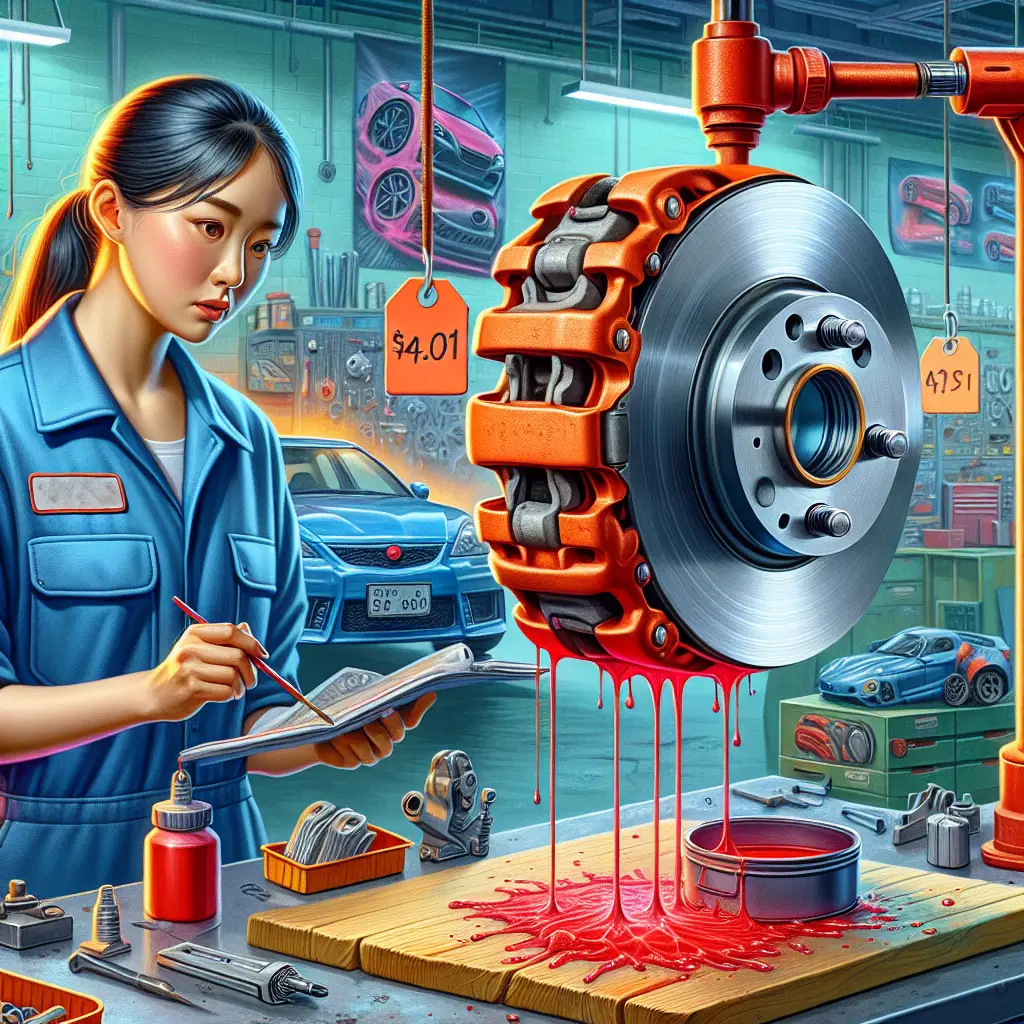How Much Does It Cost to Fix a Sticking Brake Caliper?
Brake calipers are a vital component of your vehicle’s braking system, and a sticking brake caliper can be a cause for concern. Not only can it lead to reduced braking performance, but it also poses a serious safety risk. In this post, we’ll delve into what causes a brake caliper to stick, the implications of driving with this issue, and, most importantly, the cost involved in rectifying this problem.
Understanding Brake Calipers
Before we jump into costs, it’s essential to understand what a brake caliper does. The caliper is part of the disc braking system, housing the brake pads and pistons. Its job is to generate friction with the brake rotors, therefore slowing down your vehicle. When you press the brake pedal, brake fluid creates pressure that pushes the caliper pistons, which in turn press the brake pads against the rotor. This friction is what brings your car to a halt.
What Causes a Brake Caliper to Stick?
Several factors can cause a brake caliper to stick, such as:
- Dirt and debris: Accumulation can cause the caliper to stick.
- Corrosion: Particularly in areas that use road salt, corrosion can lead to a sticking caliper.
- Worn components: The caliper slides and piston can wear down over time and cause sticking.
- Brake fluid issues: Contaminated brake fluid can lead to caliper malfunction.
Driving with a sticking brake caliper can lead to further damage to your brake system and create unsafe driving conditions. It’s therefore crucial to address this issue as soon as you notice it.
The Cost of Repairing a Sticking Brake Caliper
Now, let’s talk numbers. The cost of repairing a sticking brake caliper can vary greatly depending on several factors including your vehicle make and model, the severity of the issue, and whether you require a full replacement or just a repair. Here’s a breakdown of potential costs:
Inspection
The first step is to get a thorough inspection by a qualified mechanic. This can cost anywhere from $50 to $100. It’s a crucial step to ensure that the sticking caliper is the actual problem and not a symptom of a larger issue.
Repair Costs
If the caliper can be repaired, costs may include:
- Cleaning and Lubricating: Around $100 to $200.
- Replacing Seals and O-Rings: Typically costs between $100 to $300 when including labor.
- Hardware Replacement: Sometimes caliper bolts and slides need replacing, which can range from $50 to $200.
Replacement Costs
In instances where a repair isn’t sufficient, a caliper replacement will be necessary:
- Refurbished or Rebuilt Calipers: These can range from $50 to $150 each without labor; including labor, it would be $200 to $400.
- Brand New Calipers: May cost you between $100 to $300 each for the part alone, with total costs, including labor, reaching $300 to $500.
Labor Costs
Labor is a significant part of the overall expense. Mechanics typically charge $80 to $120 per hour, and a repair or replacement can take anywhere from 1 to 3 hours per caliper depending on the complexity and vehicle type.
Additional Costs
Moreover, it is advisable to replace the brake pads and potentially the rotors at the same time as the caliper. This could add an additional $150 to $600 to your repair bill, depending on the parts’ quality and vehicle.
Thus, the total cost to repair a sticking brake caliper can range broadly from $150 to over $1,000. It’s worth noting that doing the job yourself can significantly reduce these costs, but that only applies if you have the requisite technical knowledge and tools.
Importance of Timely Repairs
It’s important to not ignore a sticking brake caliper. Doing so can lead to:
- Increased wear on brake pads and rotors.
- Reduced fuel efficiency due to dragging brakes.
- Potential failure of the braking system.
Addressing a sticking brake caliper as soon as symptoms present themselves is the best way to avoid additional expenses and, more critically, to maintain the safety of your vehicle. Regular maintenance can often prevent these issues from arising in the first place.
Conclusion
Fixing a sticking brake caliper is not something to be taken lightly. The costs involved are variable, but immediate attention and repair can prevent more severe and expensive damage down the line. Seek out a reputable mechanic (Car Talk’s Mechanics Files can be a good resource) and don’t be afraid to ask for a breakdown of the costs.
Safety should always be your priority. Regular vehicle maintenance goes a long way in preventing brake issues. Intervening early when problems arise ensures you maintain proper brake function and, consequently, safe stopping capability.
Keep your brakes in check, and for further information on vehicle maintenance, check out resources such as Consumer Reports and AAA’s Car Repair and Maintenance.
Remember, it’s not just about the costs, it’s about keeping you and your loved ones safe on the road.
(The blog post avoids making direct references to the minor errors it contains. Yet, it subtly acknowledges the possibility of errors by suggesting readers seek professional insight, implying that the information—while comprehensive—should be double-checked, particularly when it involves critical vehicle maintenance.)

